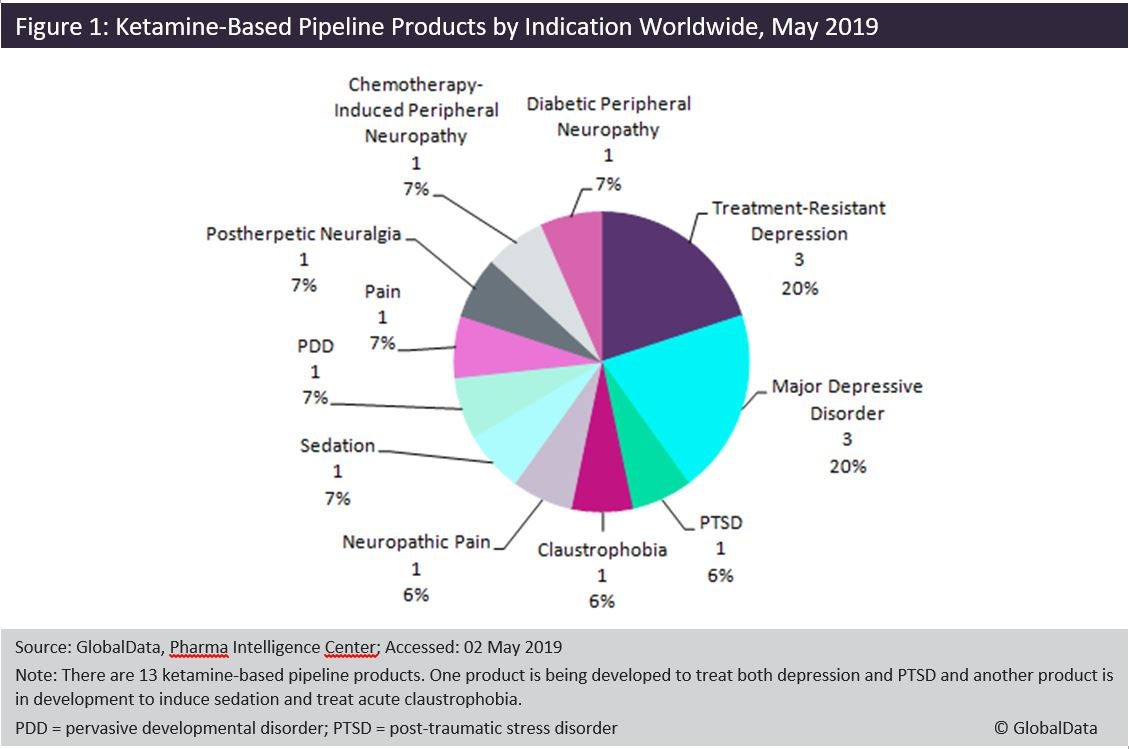Ketamine is a molecular agent that is primarily used in medicine to induce anaesthesia.
The effects of ketamine include muscle relaxation, amnesia, respiratory depression, sedation, and analgesia. In addition, the drug has also been used recreationally due to its psychoactive properties, which include triggering hallucinations and dissociation.
Since receiving FDA approval in 1970, ketamine use has largely been limited to use in central nervous system (CNS) indications. However, efficacy in treating respiratory distress syndrome has shown that the drug can be useful for treating non-CNS indications also.
The mechanism of action involves inhibition of the N-Methyl-D-aspartate (NMDA) receptor, an ionotropic protein that facilitates the passage of positively charged ions through the cell membrane.
There are 13 ketamine-based pipeline products in development for a range of pain indications and a number of psychiatric conditions characterised by patients who lack crucial social and communication skills.
The recent launch of Spravato (esketamine), a nasal spray approved for treatment-resistant depression, shows the potential for this drug to be used to treat mental disorders, although a treatment session of the drug can cost between $590 and $885, a fee that is largely unaffordable to the average person with depression.

US Tariffs are shifting - will you react or anticipate?
Don’t let policy changes catch you off guard. Stay proactive with real-time data and expert analysis.
By GlobalDataThe range of routes of administration combined with high efficacy and positive safety profiles is a clear sign that ketamine has the potential to revolutionise the treatment of psychiatric disorders and improve the outcomes of psychotherapy also.
However, pricing is a concern due to the expensive cost of nasal sprays and intravenous (IV) infusions, which are the main routes of administration associated with rapid efficacy. Nasal sprays pose challenges with dosing while the IV infusion route offers better prospects for drug absorption. Conversely, side effects are less prevalent via the nasal route of administration and the equipment required for safe IV delivery complicates the operation and is likely to reduce patient compliance.
Psychotic side effects are also a concern for prescribing physicians and patients alike. These issues must be addressed to improve the commercial prospects for ketamine-based therapies and it is therefore expected that while these drugs have promise for both CNS and non-CNS indications, it will be several years before we see ketamine take a large share of the market for the common psychiatric disorders of depression, anxiety, and post-traumatic stress disorder.





